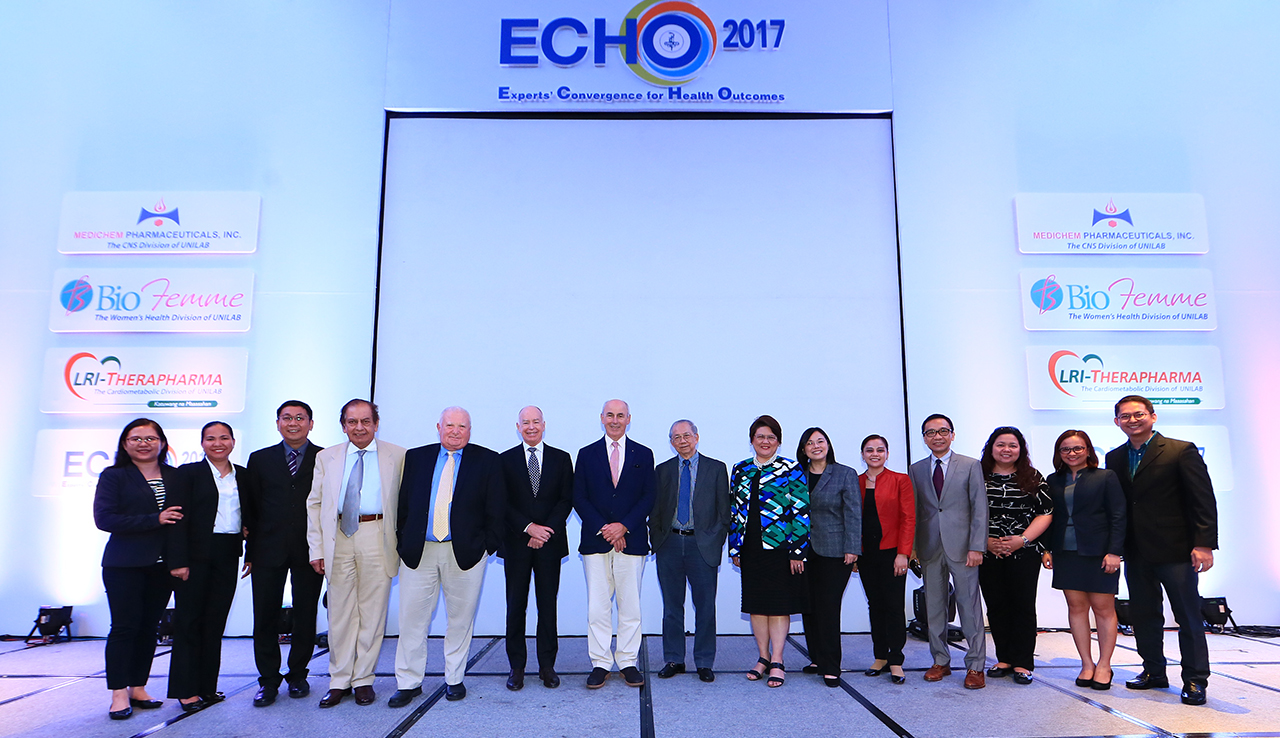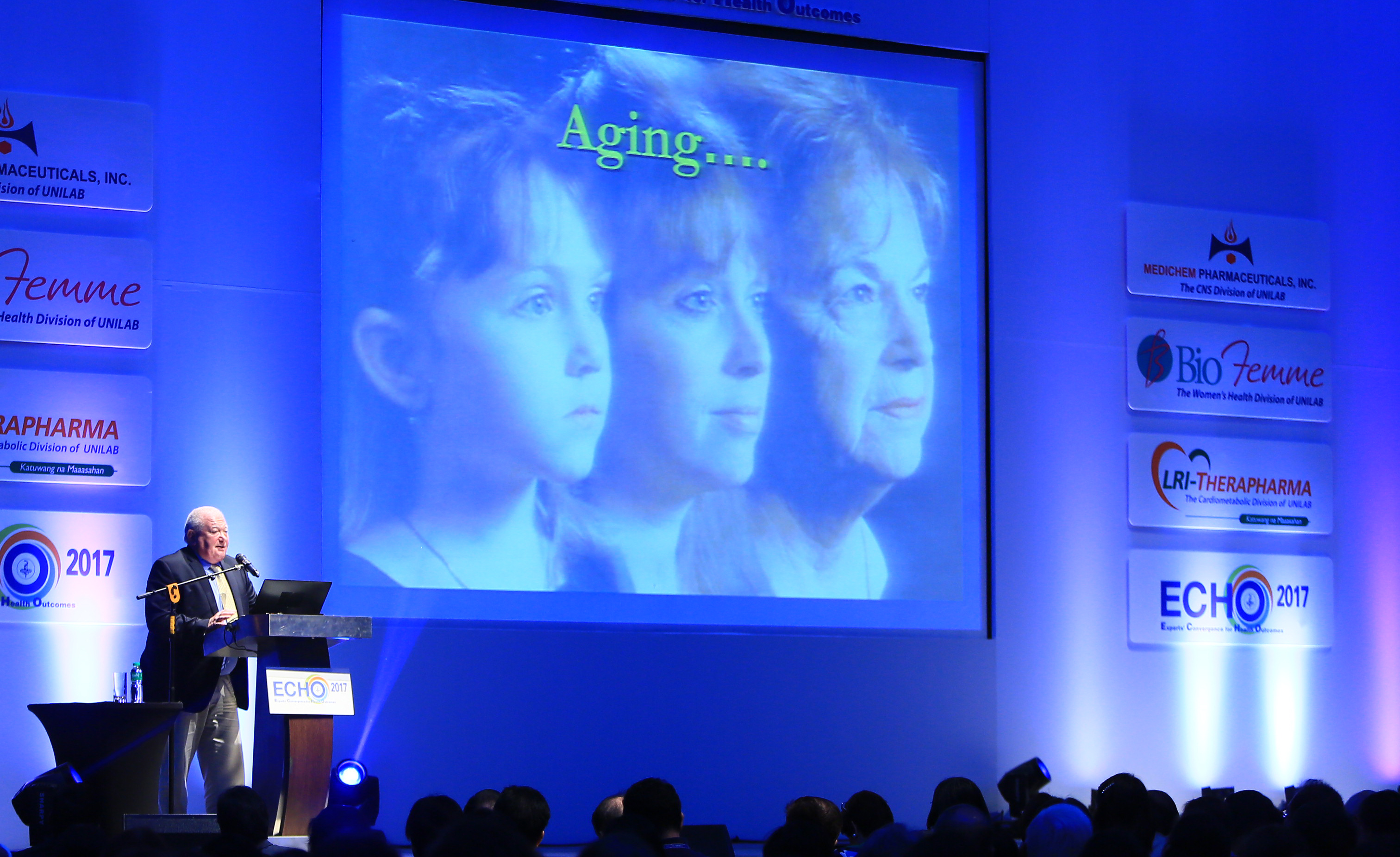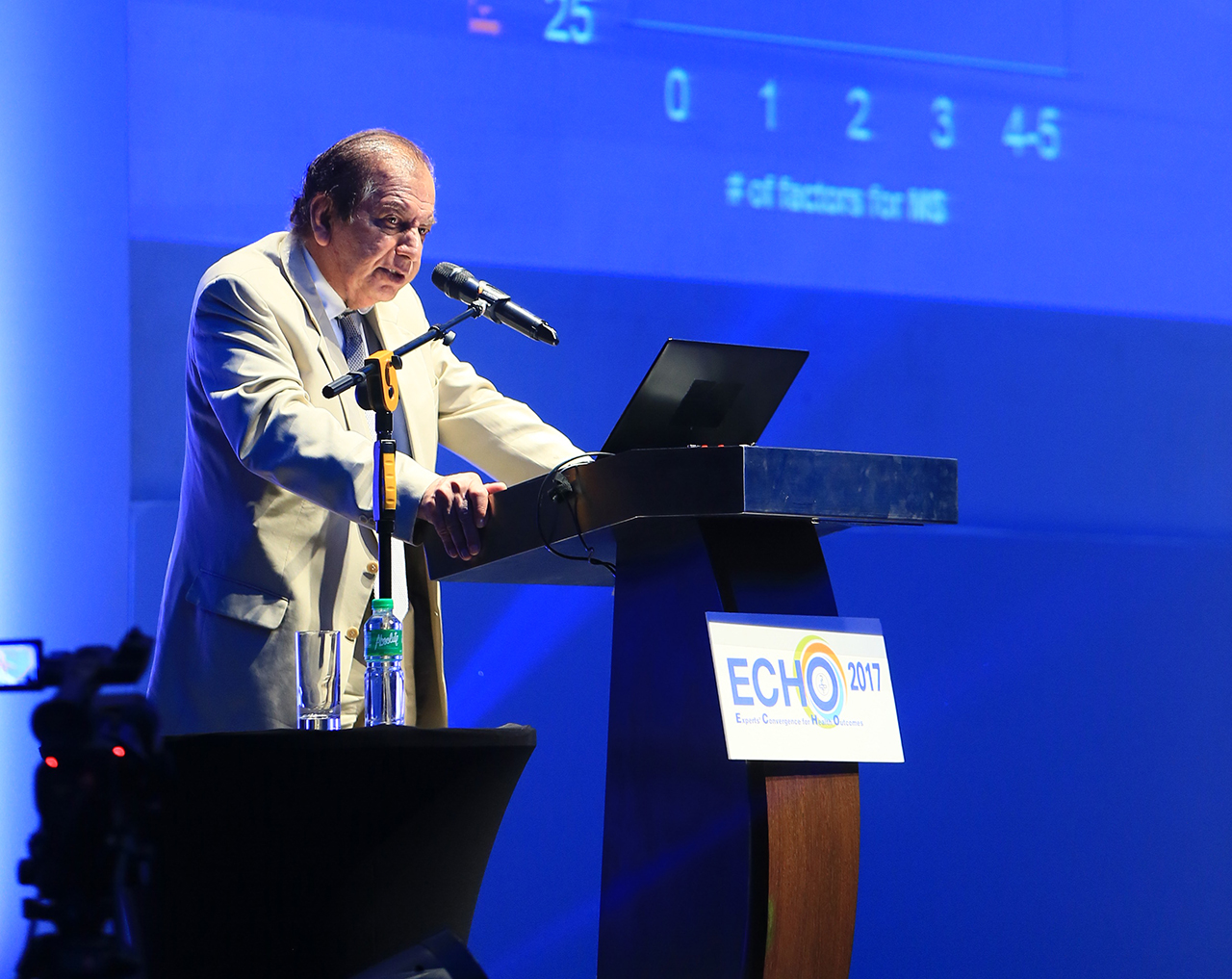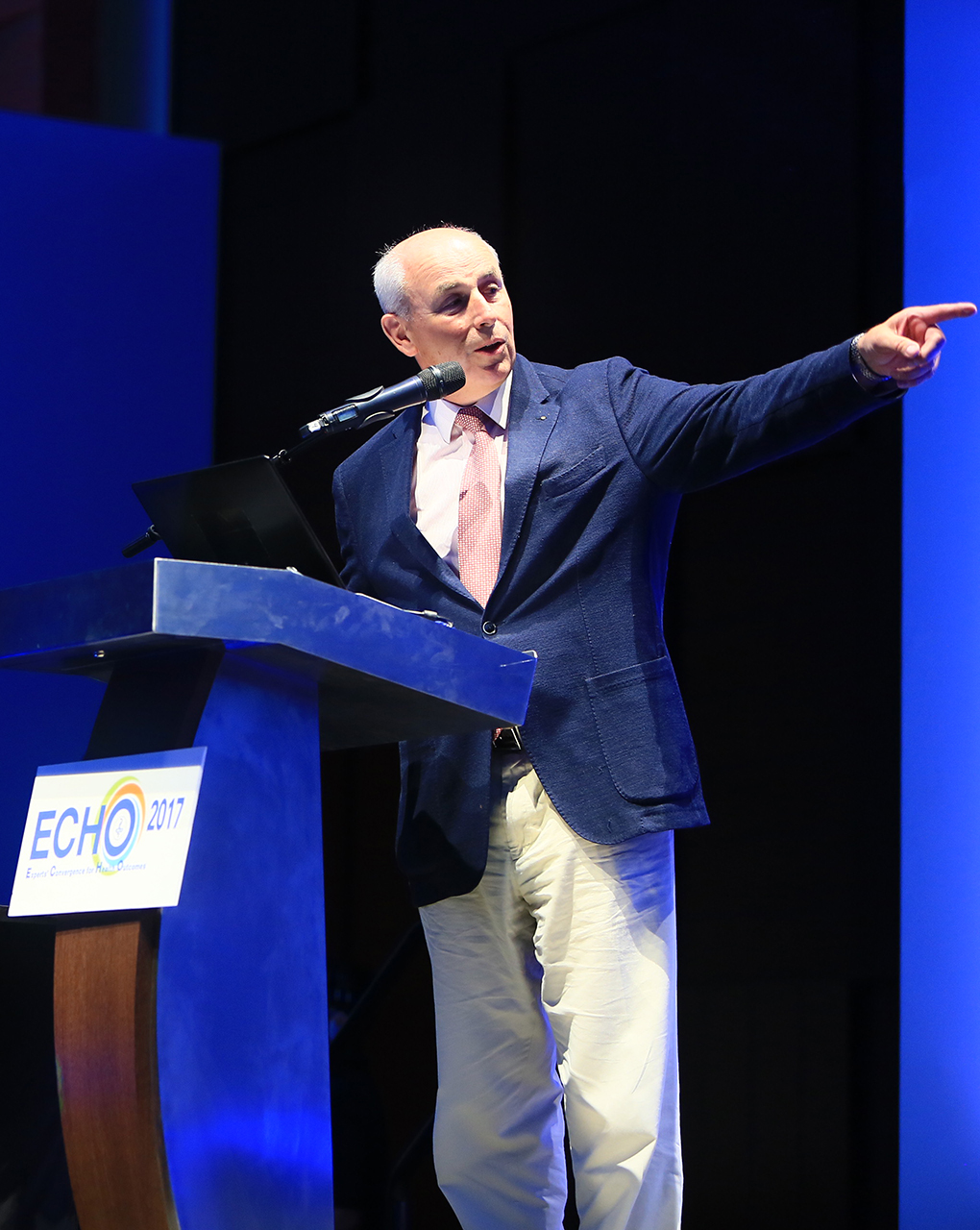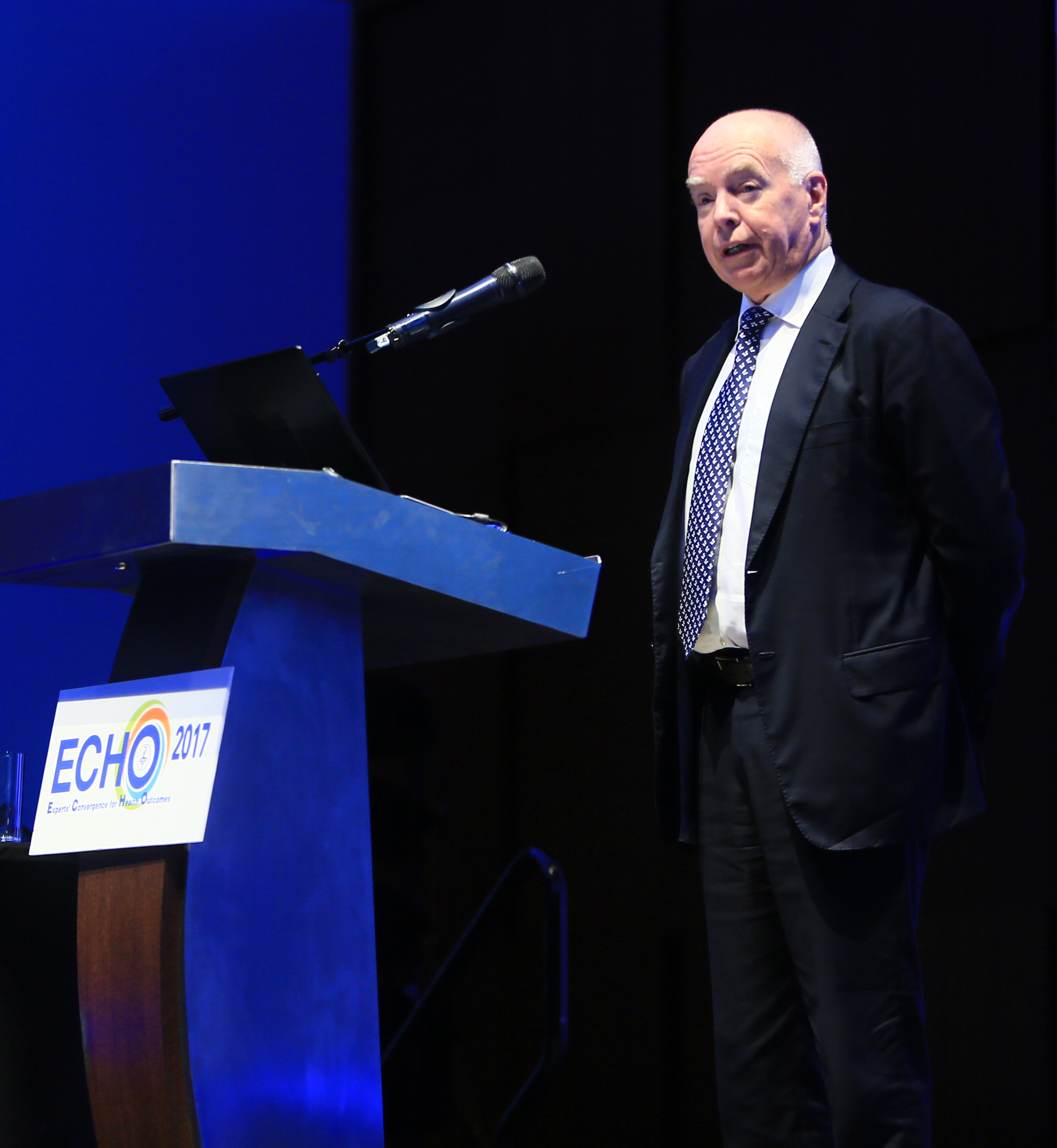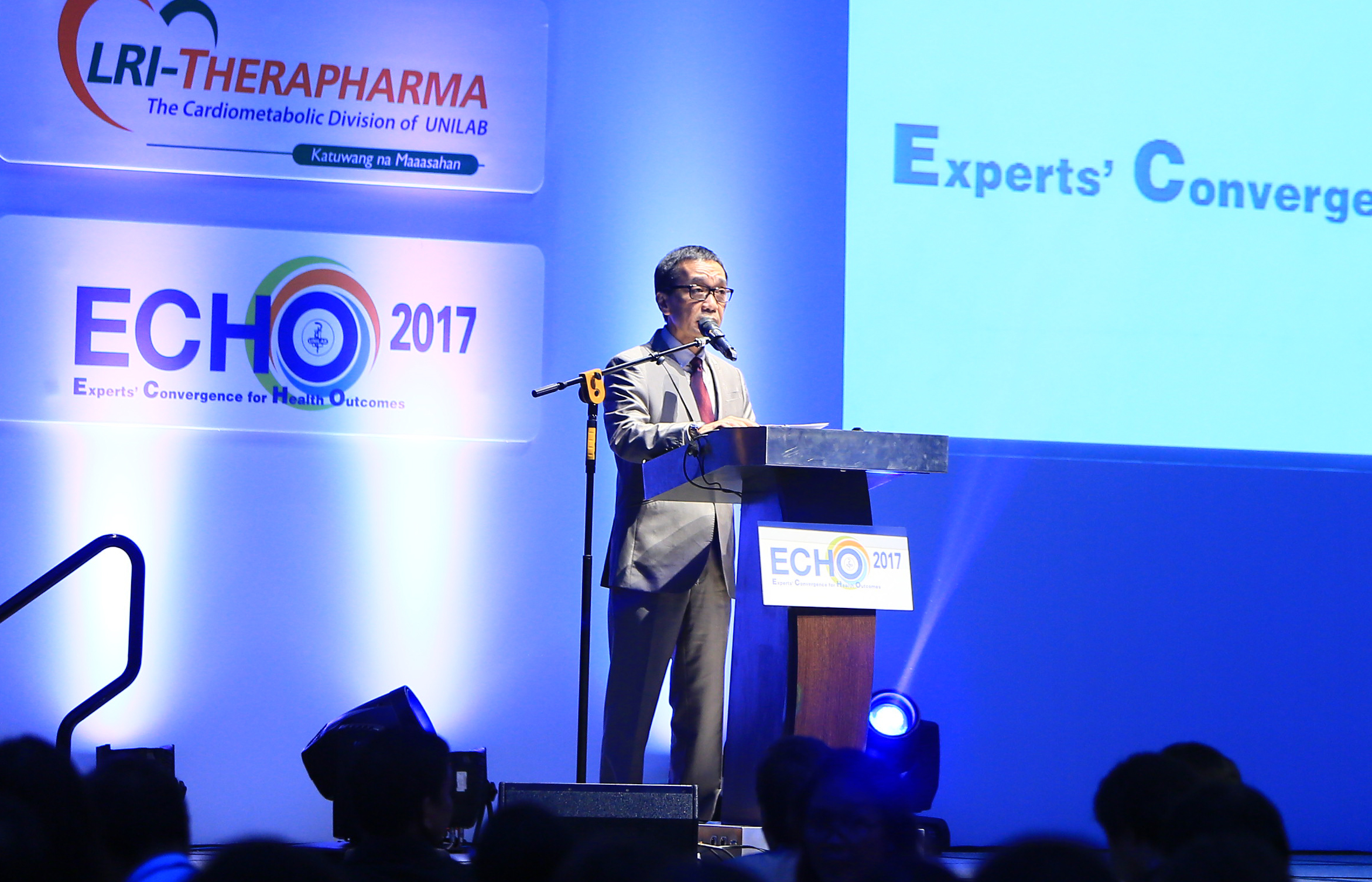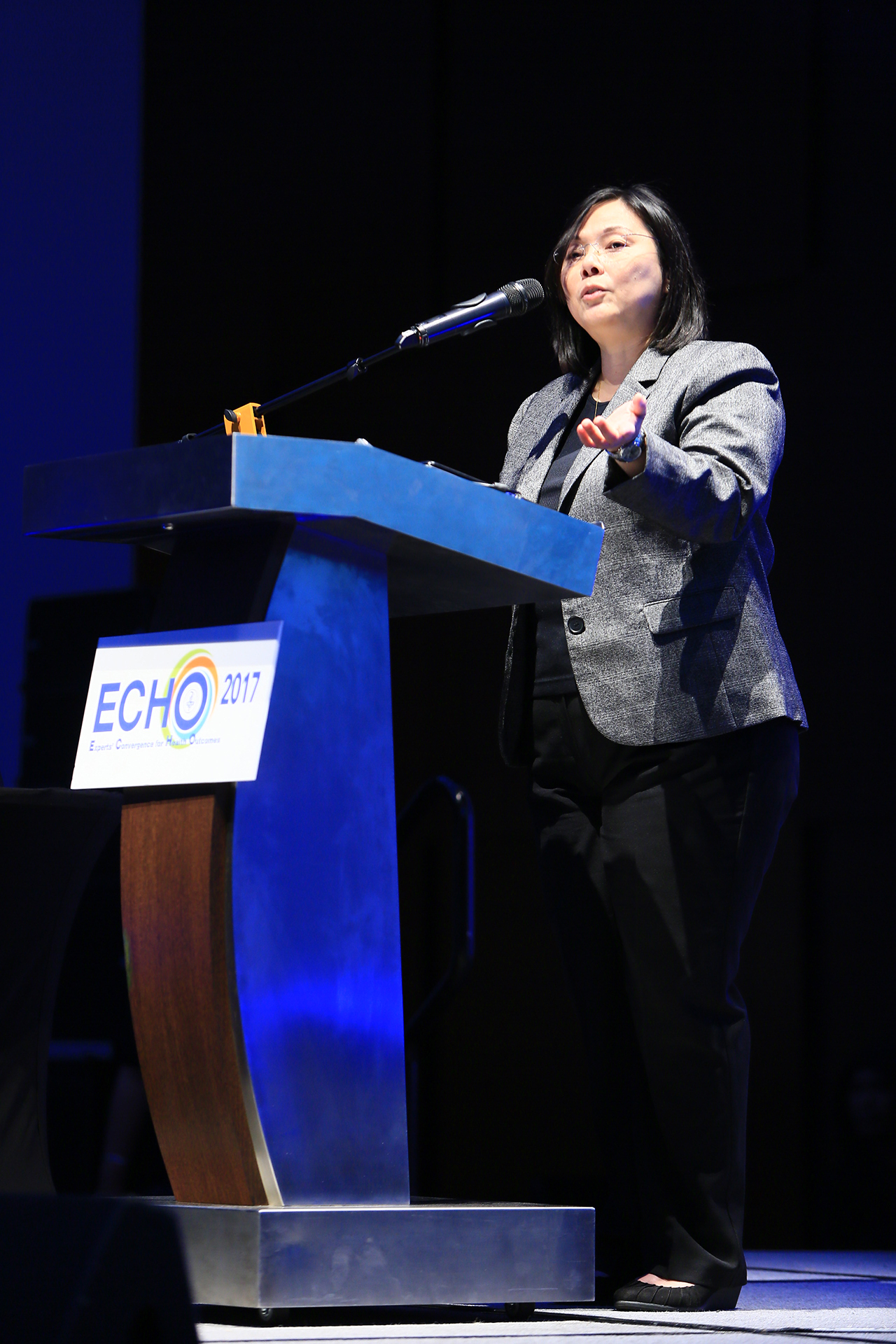‘Rock Stars of Medicine’ lectured Filipino doctors on Degenerative Diseases at 2017 Echo Summit
For the third straight year, more than a thousand Filipino doctors had a good dose of medical wisdom from the so-called “rock stars of medicine” who lectured at the 2017 Experts’ Convergence for Health Outcomes (ECHO) Summit at the Marriott Convention Center last April 27.
The summit, organized by United Laboratories, Inc. (Unilab), carried the theme “Degenerative Diseases: Pearls and Pitfalls.” Unilab brought in four globally renowned medical experts who shared their respective expertise on the latest developments and innovations on degenerative diseases.
“ECHO, which is now on its third year, is a continuing commitment of Unilab’s Specialty Cluster to medical education, bringing in opportunities to our highly valued partners for health care,” said Biofemme General Manager Herman T. Esling, who served as the ECHO Summit 2017 organizing chairman.
“ECHO Summit is a result of Unilab’s advocacy of ensuring Filipino doctors are kept abreast of the evolving medical practices worldwide. As you know, the practice of medicine is a continuous learning process,” Esling added.
Four top caliber experts in the fields of endocrinology, obstetrics, gynaecology, psychiatry, psychotherapy, graced this year’s ECHO Summit.
Dr. Reuven Zimlichman, chairman of the Department of Medicine and Head of the Department of Hypertension at the E. Wolfson Medical Center, shed light on the silent and inevitable health condition called “arterial aging,” which could lead to cardiovascular diseases.
Zimlichman explained that one’s chronological age, the one shown in an individual driver’s license, is not exactly the same as his or her biological age.
“Your age may be 40 in your driver’s license, in your birth certificate, but your arteries could be 60 or 30 years old,” Zimlichman said.
Zimlichman emphasized that while arterial aging, the natural deterioration of arteries, is inevitable, one could prevent the unprecedented rate where one’s arteries are getting older.
“Many people do not know these, but biological age can be made younger if somebody starts physical training, changes diet, takes medicines and normalizes many factors that were not in normal level before,” Zimlichman said. “Change what we eat, change the activity we do, change unhealthy things, like lifestyle. Yes, you will add number to your chronological age, but you will lower your biological age.”
Zimlichman, who also serves as the director of the Brunner Cardiovascular Research Institute at Tel-Aviv University, identified several factors that could catalyze the aging of one’s arteries and blood vessels: genetics, smoking, alcohol drinking, lack of physical activities, mental stress and unhealthy diet.
Meanwhile, Dr. Paresh Dandona, a distinguished professor at the University at Buffalo and founder of the Diabetes-Endocrinology Center of Western New York, lectured on the latest breakthrough on the effects of testosterone replacement treatment in relation to people diagnosed with diabetes.
Dandona’s lecture revolved around how improved testosterone level, particularly through testosterone replacement, not only spikes man’s sexual function, but also leads to increase in insulin sensitivity with an improvement in insulin signal transduction for those diagnosed with diabetes.
Dr. Siegfried Kasper, professor and chair of the Department of Psychiatry at the Medical University of Vienna, on the other hand, urged Filipino medical practitioners to conduct a holistic assessment of their patient’s health condition, as mental disorders like depression and anxiety remain to be underreported and underdiagnosed.
“We have to inform our patients that mental disorders are brain disorders, and not disorders of lesions like stroke. We must listen to our patients, use monitor response, use critical decision points and give realistic hopes to our patients in managing their case,” Kasper said.
Kasper noted that about 90 percent of the time, physical symptoms like recurrence of common headache and body pains are not properly diagnosed, or there’s no organic cause to be identified.
“Patients with depression are often present with numerous physical complaints. As the number of physical complaints increases, so does the likelihood of a mood disorder,” Kasper added.
Meanwhile, Dr. Rodney Baber, clinical professor of Obstetrics and Gynaecology at Sydney Medical School, discoursed on the latest medical intervention to address osteoporosis among women, particularly those in the pre- and post-menopausal phase of their lives. “The message here is that we need to use variety of treatments.”
He enumerated the available medical interventions in addressing osteoporosis in women depending on their age and status. Some of these are menopausal hormone therapy, tibolone, the use of selective estrogen receptors modulators such as tamoxifen and raloxifene, and bisphosphonates and RANKL inhibitors like denosumab.
The 2017 ECHO Summit was supported by an unrestricted grant from Unilab’s Specialty Cluster, namely, Therapharma Inc. (Cardiovascular Division), LR Imperial Inc. (Endometabolic Division), Medichem Pharmaceutics (CNS Division) and Biofemme (Women’s Health Division). ADVT
